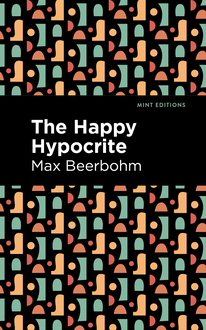-
 Univers
Univers
-
 Ebooks
Ebooks
-
 Livres audio
Livres audio
-
 Presse
Presse
-
 Podcasts
Podcasts
-
 BD
BD
-
 Documents
Documents
-
- Cours
- Révisions
- Ressources pédagogiques
- Sciences de l’éducation
- Manuels scolaires
- Langues
- Travaux de classe
- Annales de BEP
- Etudes supérieures
- Maternelle et primaire
- Fiches de lecture
- Orientation scolaire
- Méthodologie
- Corrigés de devoir
- Annales d’examens et concours
- Annales du bac
- Annales du brevet
- Rapports de stage
La lecture à portée de main
Vous pourrez modifier la taille du texte de cet ouvrage
Découvre YouScribe en t'inscrivant gratuitement
Je m'inscrisDécouvre YouScribe en t'inscrivant gratuitement
Je m'inscrisEn savoir plus
Vous pourrez modifier la taille du texte de cet ouvrage
En savoir plus

Description
George Hell is a shallow man, fond of gambling, drinking, and womanizing. Set in his socialite ways, George does whatever it takes to satisfy his desires. However, when cupid strikes George with his arrow, his lavish life is thrown into disarray. Now head over heels for a young dancer named Jenny, George immediately proposes to her, confident that no woman can resist him. But, after Jenny rejects George, claiming that she would only marry a man with the face of a saint, George is forced to reflect on his lifestyle. First, he attempts to buy a solution, going to a shop to buy a mask of a saint’s face. Now assuming a new identity of George Heaven, George proposes to Jenny once again, hoping that his new identity will trick Jenny into falling in love with him. When she agrees to marry him, George is delighted that his plan worked, but cannot abandon his charade. Slowly, with the help of Jenny’s love, George is able to let go of his vain nature, growing to be a better person. However, as Jenny and George enjoy their new, happy life, George’s ex-lover, La Gambogi, resents the sentiment. Determined to prove that George is not the man he says he is, La Gambogi sets out to expose George’s true face.
Featuring masterful storytelling and themes of redemption, true love, and morality, The Happy Hypocrite by Max Beerbohm is a bright comedy with a valuable message. With complex characters and exemplary prose, Beerbohm’s work is clever and entertaining, inspiring laughter and reflection. First published in 1897, The Happy Hypocrite continues to be humorous centuries later, appealing to the wit of modern readers.
This edition of The Happy Hypocrite by Max Beerbohm features an eye-catching new cover design and is printed in a font that is both modern and readable. With these accommodations, The Happy Hypocrite caters to a contemporary audience while preserving the original levity of Beerbohm’s work.
Sujets
Informations
| Publié par | Mint Editions |
| Date de parution | 09 mars 2021 |
| Nombre de lectures | 1 |
| EAN13 | 9781513278131 |
| Langue | English |
Informations légales : prix de location à la page 0,0250€. Cette information est donnée uniquement à titre indicatif conformément à la législation en vigueur.
Extrait
The Happy Hypocrite
Max Beerbohm
The Happy Hypocrite was first published in 1896.
This edition published by Mint Editions 2021.
ISBN 9781513277721 | E-ISBN 9781513278131
Published by Mint Editions®
minteditionbooks.com
Publishing Director: Jennifer Newens
Design & Production: Rachel Lopez Metzger
Project Manager: Micaela Clark
Typesetting: Westchester Publishing Services
C ONTENTS I II III IV V
I
None, it is said, of all who revelled with the Regent, was half so wicked as Lord George Hell. I will not trouble my little readers with a long recital of his great naughtiness. But it were well they should know that he was greedy, destructive, and disobedient. I am afraid there is no doubt that he often sat up at Carlton House until long after bedtime, playing at games, and that he generally ate and drank far more than was good for him. His fondness for fine clothes was such that he used to dress on week-days quite as gorgeously as good people dress on Sundays. He was thirty-five years old and a great grief to his parents.
And the worst of it was that he set such a bad example to others. Never, never did he try to conceal his wrong-doing; so that, in time, every one knew how horrid he was. In fact, I think he was proud of being horrid. Captain Tarleton, in his account of Contemporary Bucks , suggested that his Lordship’s great Candour was a virtue and should incline us to forgive some of his abominable faults. But, painful as it is to me to dissent from any opinion expressed by one who is now dead, I hold that Candour is good only when it reveals good actions or good sentiments, and that when it reveals evil, itself is evil, even also.
Lord George Hell did, at last, atone for all his faults, in a way that was never revealed to the world during his life-time. The reason of his strange and sudden disappearance from that social sphere in which he had so long moved, and never moved again, I will unfold. My little readers will then, I think, acknowledge that any angry judgment they may have passed upon him must be reconsidered and, maybe, withdrawn. I will leave his Lordship in their hands. But my plea for him will not be based upon that Candour of his, which some of his friends so much admired. There were, yes! some so weak and so wayward as to think it a fine thing to have an historic title and no scruples. “Here comes George Hell,” they would say. “How wicked my Lord is looking!” Noblesse oblige , you see, and so an aristocrat should be very careful of his good name. Anonymous naughtiness does little harm.
It is pleasant to record that many persons were inobnoxious to the magic of his title and disapproved of him so strongly that, whenever he entered a room where they happened to be, they would make straight for the door and watch him very severely through the key-hole. Every morning, when he strolled up Piccadilly, they crossed over to the other side in a compact body, leaving him to the companionship of his bad companions on that which is still called the “shady” side. Lord George—was quite indifferent to this demonstration. Indeed, he seemed wholly hardened, and when ladies gathered up their skirts as they passed him, he would lightly appraise their ankles.
I am glad I never saw his Lordship. They say he was rather like Caligula, with a dash of Sir John Falstaff, and that sometimes on wintry mornings in St. James’s Street young children would hush their prattle and cling in disconsolate terror to their nurses’ skirts, as they saw him come (that vast and fearful gentleman!) with the east wind ruffling the rotund surface of his beaver, ruffling the fur about his neck and wrists, and striking the purple complexion of his cheeks to a still deeper purple. “King Bogey” they called him in the nurseries. In the hours when they too were naughty, their nurses would predict his advent down the chimney or from the linen-press, and then they always “behaved.” So that, you see, even the unrighteous are a power for good, in the hands of nurses.
It is true that his Lordship was a non-smoker—a negative virtue, certainly, and due, even that, I fear, to the fashion of the day—but there the list of his good qualities comes to an abrupt conclusion. He loved with an insatiable love the town and the pleasures of the town, whilst the ennobling influences of our English lakes were quite unknown to him. He used to boast that he had not seen a buttercup for twenty years, and once he called the country “a Fool’s Paradise.” London was the only place marked on the map of his mind. London gave him all he wished for. Is it not extraordinary to think that he had never spent a happy day nor a day of any kind in Follard Chase, that desirable mansion in Herts, which he had won from Sir Follard Follard, by a chuck of the dice, at Boodle’s, on his seventeenth birthday? Always cynical and unkind, he had refused to give the broken baronet his “revenge.” Always unkind and insolent, he had offered to instal him in the lodge—an offer which was, after a little hesitation, accepted. “On my soul, the man’s place is a sinecure,” Lord George would say; “he never has to open the gate to me.” So rust has covered the great iron gates of Follard Chase, and moss had covered its paths. The deer browsed upon its terraces. There were only wild flowers anywhere. Deep down among the weeds and water-lilies of the little stone-rimmed pond he had looked down upon, lay the marble faun, as he had fallen.
Of all the sins of his Lordship’s life surely not one was more wanton than his neglect of Follard Chase. Some whispered (nor did he ever trouble to deny) that he had won it by foul means, by loaded dice. Indeed no card-player in St. James’s cheated more persistently than he. As he was rich and had no wife and family to support, and as his luck was always capital, I can offer no excuse for his conduct. At Carlton House, in the presence of many bishops and cabinet ministers, he once dunned the Regent most arrogantly for 5000 guineas out of which he had cheated him some months before, and went so far as to declare that he would not leave the house till he got it; whereupon His Royal Highness, with that unfailing tact for which he was ever famous, invited him to stay there as a guest; which, in fact, Lord George did, for several months. After this, we can hardly be surprised when we read that he “seldom sat down to the fashionable game of Limbo with less than four, and sometimes with as many as seven aces up his sleeve.” We can only wonder that he was tolerated at all.
At Garble’s, that nightly resort of titled rips and roysterers, he usually spent the early hours of his evenings.
-
 Univers
Univers
-
 Ebooks
Ebooks
-
 Livres audio
Livres audio
-
 Presse
Presse
-
 Podcasts
Podcasts
-
 BD
BD
-
 Documents
Documents
-
Jeunesse
-
Littérature
-
Ressources professionnelles
-
Santé et bien-être
-
Savoirs
-
Education
-
Loisirs et hobbies
-
Art, musique et cinéma
-
Actualité et débat de société
-
Jeunesse
-
Littérature
-
Ressources professionnelles
-
Santé et bien-être
-
Savoirs
-
Education
-
Loisirs et hobbies
-
Art, musique et cinéma
-
Actualité et débat de société
-
Actualités
-
Lifestyle
-
Presse jeunesse
-
Presse professionnelle
-
Pratique
-
Presse sportive
-
Presse internationale
-
Culture & Médias
-
Action et Aventures
-
Science-fiction et Fantasy
-
Société
-
Jeunesse
-
Littérature
-
Ressources professionnelles
-
Santé et bien-être
-
Savoirs
-
Education
-
Loisirs et hobbies
-
Art, musique et cinéma
-
Actualité et débat de société
- Cours
- Révisions
- Ressources pédagogiques
- Sciences de l’éducation
- Manuels scolaires
- Langues
- Travaux de classe
- Annales de BEP
- Etudes supérieures
- Maternelle et primaire
- Fiches de lecture
- Orientation scolaire
- Méthodologie
- Corrigés de devoir
- Annales d’examens et concours
- Annales du bac
- Annales du brevet
- Rapports de stage

















